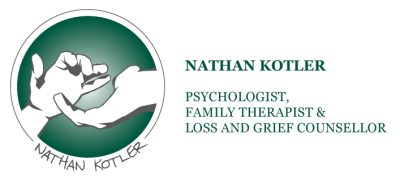A Scary Health Diagnosis
Mirella came in first, red-eyed and teary. Her husband Simon came in next, and he didn’t make any eye contact with me. They have been seeing me as a couple for a few months, working to build on the improvements they have been able to make in their relationship. As Mirella sat down, she blurted out “I have been diagnosed with cancer and I am really scared”.
She told me how she had felt a strange lump in her right breast and went immediately to see her GP who made an appointment for Mirella to see a highly qualified oncologist in a nearby private hospital. He ordered some tests, and the results had just come back. This had all happened within the past week and they were both in shock. Simon sat next to her stroking her hand gently as she talked, looking very pale. Mirella kept saying “I have cancer, I have cancer, I have cancer”, looking as if she was in a daze.
As I encouraged them to talk about what they had just experienced within the past week, it became clear that they had little information to go on. Mirella had seen her oncologist alone because she hadn’t wanted to worry Simon. Her oncologist was very busy each time she saw him, and he did not spend much time with her even after the results had came back. In fact Mirella’s memory of that second appointment was of her walking in to the doctor’s office, sitting down and waiting for him to finish looking through her file. Apparently he looked up at her eventually and said something like “It doesn’t look good, you have breast cancer, and we will probably have to operate and you may lose one or both breasts. Any questions?” She had no clear recollection of the rest of that session.
They were both confused and scared. Their imaginations were running wild, each convinced that their individual doomsday scenarios were about to turn into reality. They were unable to discuss their fears with each other, but nothing else seemed important for them to talk about. Their lives had been overturned and they both felt out-of-control and isolated.
I guided them through some relaxation breathing and as they settled, I began talking. I talked about their need for factual information, and how the absence of that was leaving them highly anxious about the unknown. I asked them about times in their lives when they had been anxious about a forthcoming event and if being told facts about the event had made it easier to manage. They both had had shared an experience when they had heard that their adult son had to have some surgery. Their initial panic was greatly reduced when they had heard about the details of the medical procedure and its likely prognosis.
I then pointed out that Mirella didn’t have cancer. She had a cancer! A particular cancer that had its own treatment. We then talked about what they could do to get more information about her cancer. As they discussed the relevant issues, they both relaxed, presumably because they now had a way of regaining some control. The first issue was how to deal with the doctor. Mirella saw him as being illness/cure focused, with not much of a “bed-side manner”. They decided that they should see him together, so that Simon could help her remember details later. They also decided that they needed to prepare a list of questions to be discussed, and that they would seriously consider seeing their GP to arrange for a second opinion if that consultation proved to be unsatisfactory (and that they might even get a second opinion whatever happened!).
We then spent the rest of the session beginning to brainstorm relevant questions. They left together.
Leave a reply